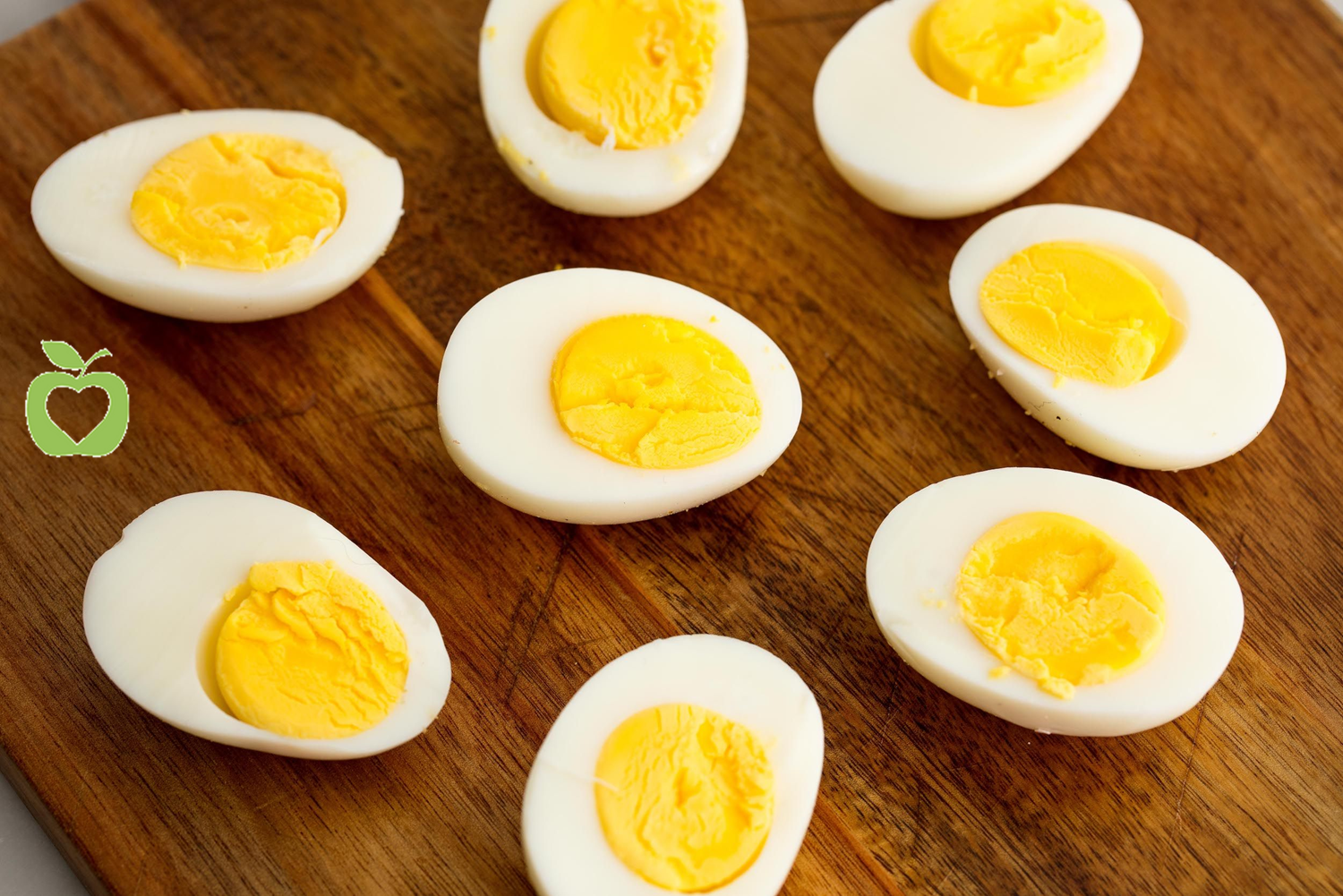Hard-boiled eggs are highly nutritious and great to have at hand as a healthy snack or to use as part of a balanced meal.
Still, perhaps surprisingly, they have a shorter shelf life than fresh eggs.
This article explains how long hard-boiled eggs are good and how to keep them fresh the longest.
How to correctly store boiled eggs
During boiling, the protective layer that coats the shell is removed, making the eggs more susceptible to air and harmful microorganisms.
Therefore, refrigeration is imperative when it comes to preventing hard-boiled eggs from contaminating or spoiling.
Storing them in your fridge helps to slow bacterial growth, as potentially dangerous bacteria grow slower in temperatures below 40°F (4°C).
Avoid keeping the cooked eggs at room temperature for a long and refrigerate them within 2 hours of cooking.
It’s also best to store them in a carton or an air-tight container. Keep them on an inside shelf rather than in the door, as frequent opening and closing of the fridge may cause the temperatures in this spot to fluctuate.
Initially, you may notice a gassy odor in your refrigerator when storing hard-boiled eggs. This is caused by hydrogen sulfide that forms when eggs are boiled.
However, this is normal and harmless, and the smell usually dissolves within a few hours.
Lastly, it’s not recommended to freeze hard-boiled eggs, as both the egg white and yolk become tough and watery, making them less enjoyable to eat.
Peeled hard-boiled eggs
For the best quality, it’s best to wait to peel hard-boiled eggs until you’re ready to eat them or use them in a recipe.
If the eggs have already been peeled, it’s recommended to keep them in an air-tight container along with a damp paper towel to prevent them from drying out.
Just like unpeeled hard-boiled eggs, peeled ones should not be left at room temperature and should be refrigerated as quickly as possible.
How long can hard-boiled eggs last before spoiling?
If you’re unsure how long your hard-boiled eggs have been stored, first check the shell for a slimy or chalky appearance. If present, throw out the egg to be safe.
It’s important not to eat eggs past their prime, as this can put you at risk of foodborne illness with symptoms like diarrhea, nausea, and vomiting.
A spoiled hard-boiled egg may have a distinctive, unpleasant odor. If the egg still has the shell on, you may need to crack it to assess the smell.
Many people become alarmed if the yolk of a hard-boiled egg is greenish-gray in color. However, this doesn’t necessarily mean that your egg has gone bad.
The color of the yolk varies depending on cooking time and cooking temperature. When eggs are boiled for a long, the yolk becomes paler in color and eventually turns greenish-gray.
This color occurs when you overcook the egg, as this makes the iron from the yolk react with the hydrogen sulfide from the white.
While this might affect the texture and mouthfeel, it’s safe to eat.
When handled and stored properly, hard-boiled eggs stay fresh for about 1 week.
Hard-boiled eggs should be stored on an inside shelf of your fridge, and cooled within 2 hours of cooking. For the best quality, store them unpeeled and inside an egg carton or air-tight container.
This way you can reap the many benefits this nutritious food has to offer.
Have any questions? Drop a comment on this post and one of our experts will reach out to you.
At Comfort Nutrition Services, we are committed to counseling and assisting our clients, fans, and followers to reach their healthy nutritional goals.

